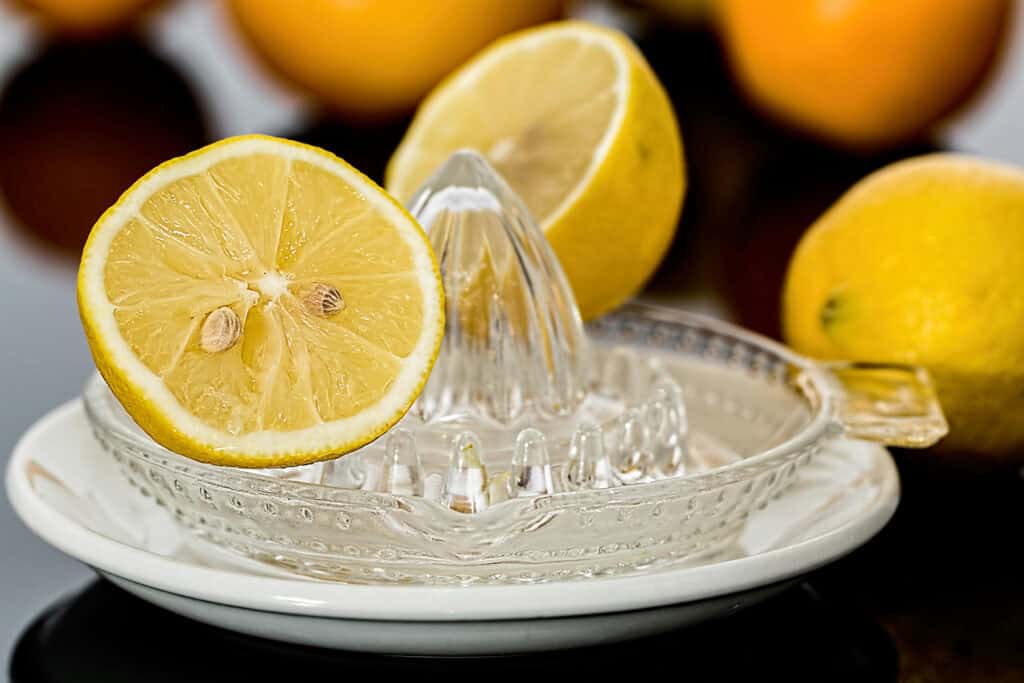
Craving a zesty, refreshing drink without the added sugar? Meet diet lemonade, the perfect solution for your hydration and wellness goals. Whether you’re looking to cut back on calories, boost your vitamin C intake, or enjoy a flavorful alternative to sugary beverages, diet lemonade has you covered.
In this article, you’ll discover:
- The health benefits of diet lemonade are hydration and antioxidants.
- Simple DIY recipes with variations like mint lemonade or berry lemonade.
- Top store-bought options and tips for choosing the best one.
Stick with us, and by the end, you’ll have all the tools to enjoy this guilt-free, tangy delight anytime, anywhere.
- What is Diet Lemonade?
- Health Benefits of Diet Lemonade
- How to Make Diet Lemonade at Home
- Store-Bought Diet Lemonades
- Sweeteners Used in Diet Lemonade
- Potential Downsides of Diet Lemonade
- Incorporating Diet Lemonade Into Your Routine
- Is Diet Lemonade Safe for Everyone?
- DIY Diet Lemonade Recipes to Try
- Fun Facts About Lemonade
- Diet Lemonade vs. Regular Lemonade
- Diet Lemonade: A Recap
What is Diet Lemonade?
Diet lemonade is a low-calorie beverage designed for wellness and refreshment. Made with real lemon juice, it often includes sugar substitutes instead of traditional sweeteners, making it suitable for those on the 14-Day No-Sugar Diet or similar plans.
This drink uses simple ingredients like water, lemon concentrate, and low-calorie sweeteners. It’s a popular choice among beverages for its balance of flavor and nutrition. Often paired with diet green tea, it provides a fruity and refreshing twist.
Whether sweetened or unsweetened, it can be a tasty addition to your general nutrition advice routine. Enjoy it as a refreshing treat or pair it with your favorite meals to enhance hydration and health goals.
See also Rice Diet Recipes: 10 Simple Dishes for a Healthier You
Health Benefits of Diet Lemonade

- Low-Calorie Option
Traditional lemonade can pack in hundreds of calories per serving due to added sugar. Diet lemonade, however, typically contains less than 10 calories per serving, making it a great option for weight management. - Hydration
Lemons are rich in vitamin C and add a natural zing to water, encouraging better hydration. Staying hydrated is crucial for overall health and can help maintain energy levels throughout the day. - Reduced Sugar Intake
By replacing sugar with low-calorie sweeteners, diet lemonade helps reduce your overall sugar consumption, lowering your risk of issues like obesity, diabetes, and tooth decay. - Rich in Antioxidants
Lemons contain antioxidants like vitamin C, which can help protect your cells from damage caused by free radicals.
How to Make Diet Lemonade at Home
Basic Recipe
Ingredients:
- 4 medium lemons (freshly squeezed)
- 4 cups of cold water
- 2-3 tablespoons of your favorite sugar substitute (like stevia or erythritol)
- Ice cubes
Steps:
- Juice the lemons into a pitcher.
- Add the cold water and sweetener.
- Stir well until the sweetener dissolves.
- Pour over ice and enjoy!
Variations
- Mint Lemonade: Add a handful of fresh mint leaves for a cooling twist.
- Berry Lemonade: Blend in a handful of fresh or frozen berries for added flavor and color.
- Sparkling Lemonade: Use sparkling water instead of still water for a fizzy treat.
Store-Bought Diet Lemonades

For convenience, you can find diet lemonade at most grocery stores. Popular brands include:
- Minute Maid Zero Sugar Lemonade: Sweetened with artificial sweeteners and contains no calories.
- Crystal Light Lemonade: A powdered mix with low calories that is easy to prepare anywhere.
- Simply Light Lemonade: Made with stevia, this is a lower-calorie option with a natural taste.
When buying diet lemonade, always check the ingredients to ensure it aligns with your dietary needs.
Sweeteners Used in Diet Lemonade

- Stevia
A natural sweetener derived from the stevia plant. It’s calorie-free and has no effect on blood sugar levels, making it ideal for diabetics. - Erythritol
A sugar alcohol with zero calories. It has a mild sweetness and doesn’t cause spikes in blood sugar. - Sucralose
A widely used artificial sweetener found in many diet beverages. It’s calorie-free and very sweet, so only a small amount is needed. - Aspartame
A common sweetener in diet sodas and drinks. It’s low-calorie but not suitable for individuals with phenylketonuria (PKU).
Potential Downsides of Diet Lemonade

- Artificial Sweeteners
Some people may be sensitive to artificial sweeteners, experiencing bloating or headaches. Always monitor how your body reacts. - Acidity
Lemons are acidic and can erode tooth enamel over time. To reduce this risk, drink diet lemonade with a straw and rinse your mouth with water afterward. - Taste Preference
Not everyone enjoys the aftertaste of certain sugar substitutes. Experiment with different sweeteners to find the one you like best.
Incorporating Diet Lemonade Into Your Routine
- During Workouts
Stay hydrated with a refreshing glass of diet lemonade post-workout. Add a pinch of salt to make it a natural electrolyte drink. - As a Soda Replacement
If you’re cutting back on soda, diet lemonade is a satisfying alternative that offers flavor without calories or carbonation. - In Recipes
Use diet lemonade as a base for cocktails, mocktails, or marinades. Its tangy flavor pairs well with many dishes.
See also Carnivore Diet Meal Plan: 7 Days of Protein-Packed Meals
Is Diet Lemonade Safe for Everyone?

Diet lemonade is generally safe for most people. However:
- Individuals with sensitivities to artificial sweeteners should choose natural options like stevia.
- Those with acid reflux may need to limit their intake due to the acidity of lemons.
DIY Diet Lemonade Recipes to Try
Herbal Diet Lemonade
Ingredients:
- 4 cups of cold water
- Juice of 3 lemons
- 1-2 tablespoons of sugar substitute
- A sprig of rosemary or thyme
Steps:
- Combine all ingredients in a pitcher.
- Let it sit in the fridge for an hour to infuse the herbal flavor.
- Serve over ice.
Cucumber-Lemon Diet Lemonade
Ingredients:
- 4 cups of cold water
- Juice of 2 lemons
- 1 small cucumber, thinly sliced
- 1-2 tablespoons of sugar substitute
Steps:
- Mix all ingredients in a pitcher.
- Let it chill for 30 minutes.
- Pour over ice and enjoy a refreshing drink.
Fun Facts About Lemonade

- The origins of lemonade date back to ancient Egypt, where it was made with lemons and honey.
- National Lemonade Day is celebrated in the U.S. on August 20th.
- Lemonade stands have been a classic way for kids to learn about entrepreneurship.
Diet Lemonade vs. Regular Lemonade

Diet lemonade and regular lemonade differ in sugar, ingredients, and nutrition. Regular lemonade uses sugar and real lemon juice, offering a natural taste. Diet lemonade substitutes sugar with low-calorie sweeteners, often maintaining the tart flavor. This change suits a good diet plan or calorie-conscious individuals.
Regular lemonade provides energy from sugar but may spike calories, while diet lemonade reduces calorie intake. Many diet options use concentrates or three simple ingredients like bottled lemon juice, water, and sweeteners. Brands like Diet Sprite offer variations blending fruit flavors.
See also Meat and Fruit Diet: 3-Days Sample Meal Plan
Diet Lemonade: A Recap
Diet lemonade offers a refreshing way to enjoy a healthier beverage. Made with three simple ingredients, it combines water, real lemon juice, and sweeteners. Unlike sugary drinks or unhealthy foods, it fits well in diets like the 7-day rice diet plan.
This drink provides flavor without extra calories, aligning with general nutrition advice. While concentrates simplify preparation, choosing fresh options boosts nutrition. Diet lemonade pairs perfectly with meals or as a standalone treat. Replacing sugary beverages with diet lemonade helps cut calories while keeping hydration enjoyable.
Its balanced taste and simple ingredients make it a great choice for health-conscious individuals. For anyone looking to enhance their diet, diet lemonade is an easy and tasty solution!


